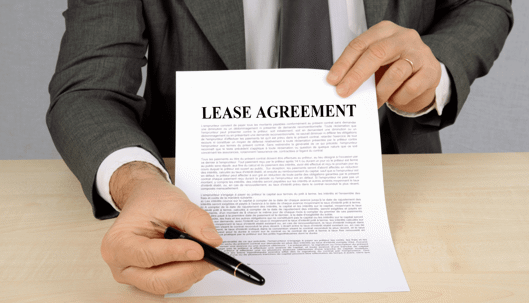Signing a lease can be a massive commitment for a tenant. A lease term can run for a long period of time, and the monetary obligations that a tenant can incur can be very burdensome. It is therefore extremely important for a tenant to really understand its needs prior to signing a lease, and for the tenant to try and negotiate a lease structure that fits its needs and risk tolerance. Although the key deal points are found in a letter of intent, or term sheet, the real negotiations often take place during the drafting of the lease. This article will discuss a few key concepts and provisions that every tenant should keep in mind when negotiating their lease.
Rent
Although it may seem like a “no brainer” it is important to point out the different types of rents that a tenant pays, and how certain rents can escalate year over year. There are two main types of rent: (i) fixed rent and (ii) additional rent.
What is fixed rent? Fixed rent is the amount of rent a tenant pays every single month for the right to occupy the leased space. Although it is often referred to as fixed rent, it is more often than not, not actually fixed. In most commercial leases, the amount a tenant has to pay in fixed rent increases year after year. The increase in fixed rent is often referred to as fixed rent escalations. Fixed rent generally escalates at 3.5% year-over-year in commercial leases. A tenant needs to make sure that they account for the fact that their rent will be going up every single year (unless otherwise negotiated).
Now, what is additional rent? Additional rent is all of the other payments a tenant will have to make to a landlord. This can include tax payments, cleaning services, certain document review fees and other random charges. Because additional rent is usually spread out throughout the lease document, it is important to fully understand the types of additional rent that the landlord is charging, as well the expected amounts of such rent.
Permitted Use
The “Permitted Use” in a lease is the term that defines that exact type of use and business that a tenant can operate in a space. If a tenant violates the permitted use provision, the tenant will likely be in default under the lease terms. It is extremely important for a tenant to fully and clearly explain to a landlord exactly the type of business it plans on operating in the leased space. Providing a clear intended permitted use to a landlord form the beginning can save the tenant a big headache later on.
Landlord’s Services
Landlord’s services, as it sounds, are the services that the Landlord is required to provide to the tenant under the lease terms. Many landlords will not provide any services whatsoever, but some landlords do offer some services, like providing water and heat to the tenant. Leases are very often not clear on the exact services that a landlord will actually provide. It is therefore very important to set the record straight at the initial stages of negotiations so the tenant knows exactly what the landlord will provide, and what the tenant will have to take care of on its own.
It is clear that there are many key provisions in a lease that should not be overlooked. The ramifications for not thoroughly understanding a tenant’s needs can be very costly and cause a tenant to go out of business. It is important to make sure you have proper representation when negotiating your lease. For more information, or for help on your next lease agreement, reach out to the knowledgeable real estate attorneys at KI Legal by calling (646) 766-8308 or emailing info@kilegal.com.
*ATTORNEY ADVERTISING*
*PRIOR RESULTS DO NOT GUARANTEE A SIMILAR OUTCOME*
This information is the most up to date news available as of the date posted. Please be advised that any information posted on the KI Legal Blog or Social Channels is being supplied for informational purposes only and is subject to change at any time. For more information, and clarity surrounding your individual organization or current situation, contact a member of the KI Legal team.
_____________________________________________________________________________________________
KI Legal focuses on guiding companies and businesses throughout the entire legal spectrum. KI Legal’s services generally fall under three broad-based practice group areas: Transactions, Litigation and General Counsel. Its extensive client base is primarily made up of real estate developers, managers, owners and operators, lending institutions, restaurant and hospitality groups, construction companies, investment funds, and asset management firms. KI Legal’s unwavering reputation for diligent and thoughtful representation has been established and sustained by its strong team of reputable attorneys and staff. For the latest updates, follow KI Legal on LinkedIn, Facebook, and Instagram. For more information, visit kilegal.com.

